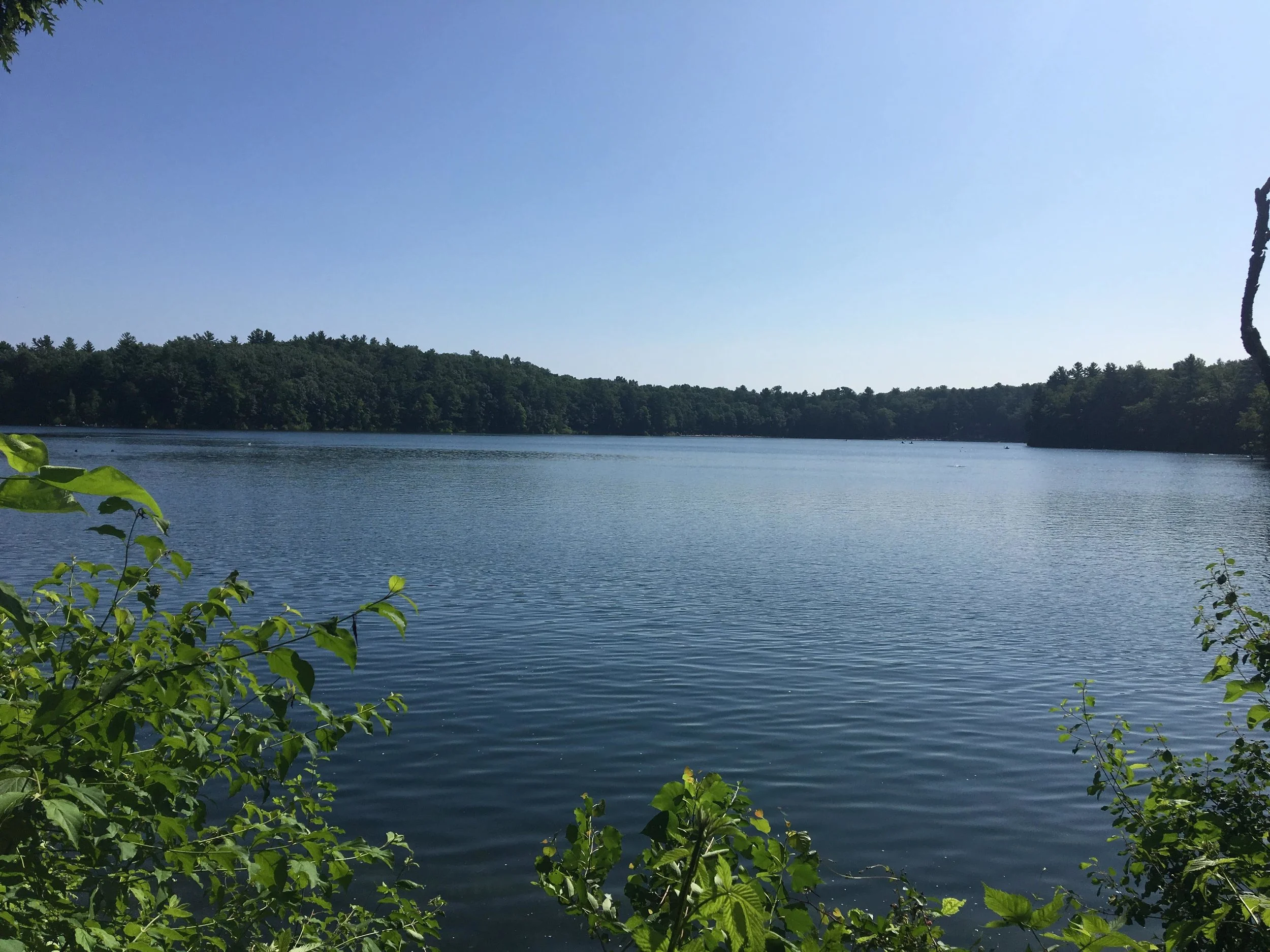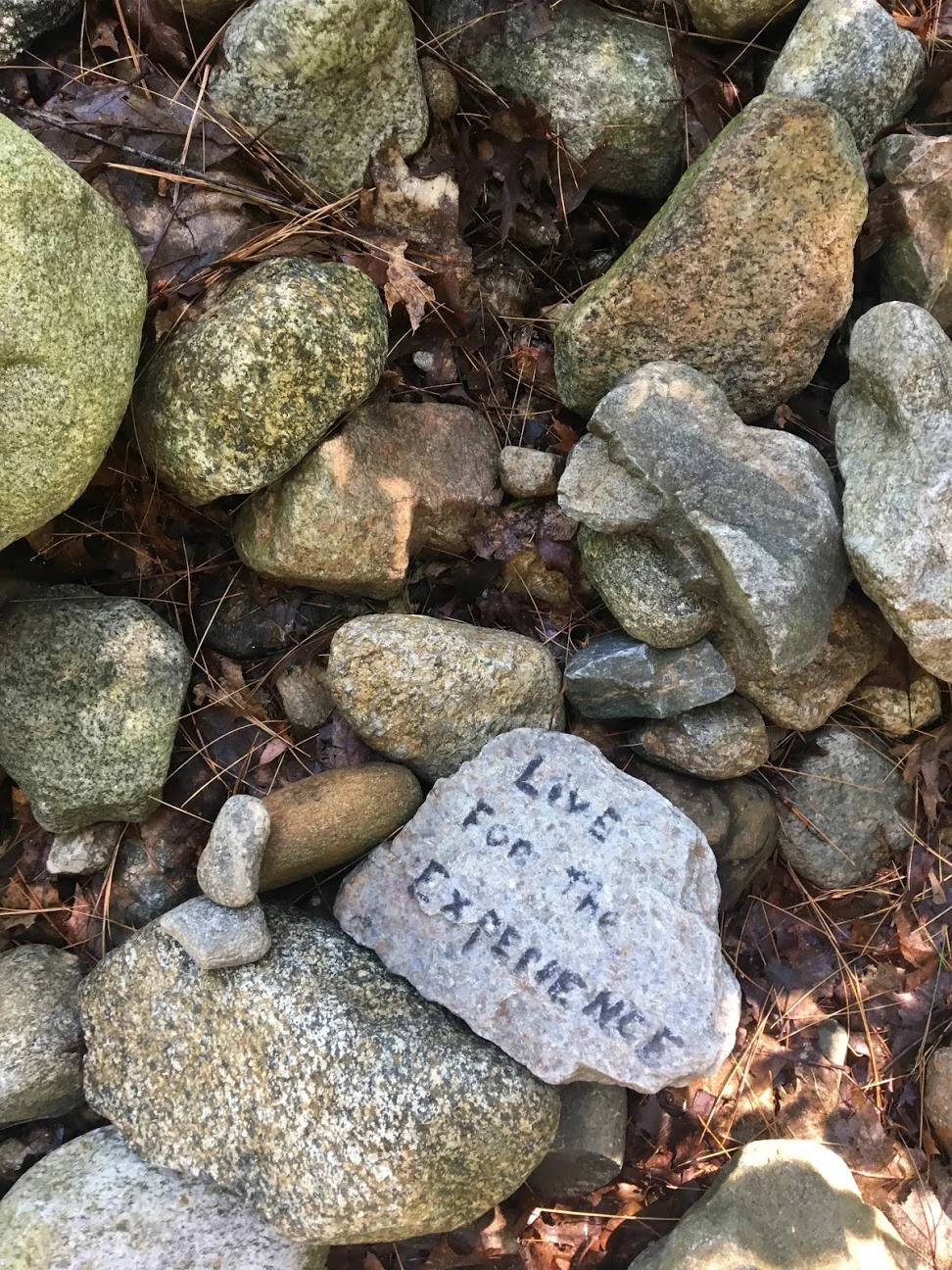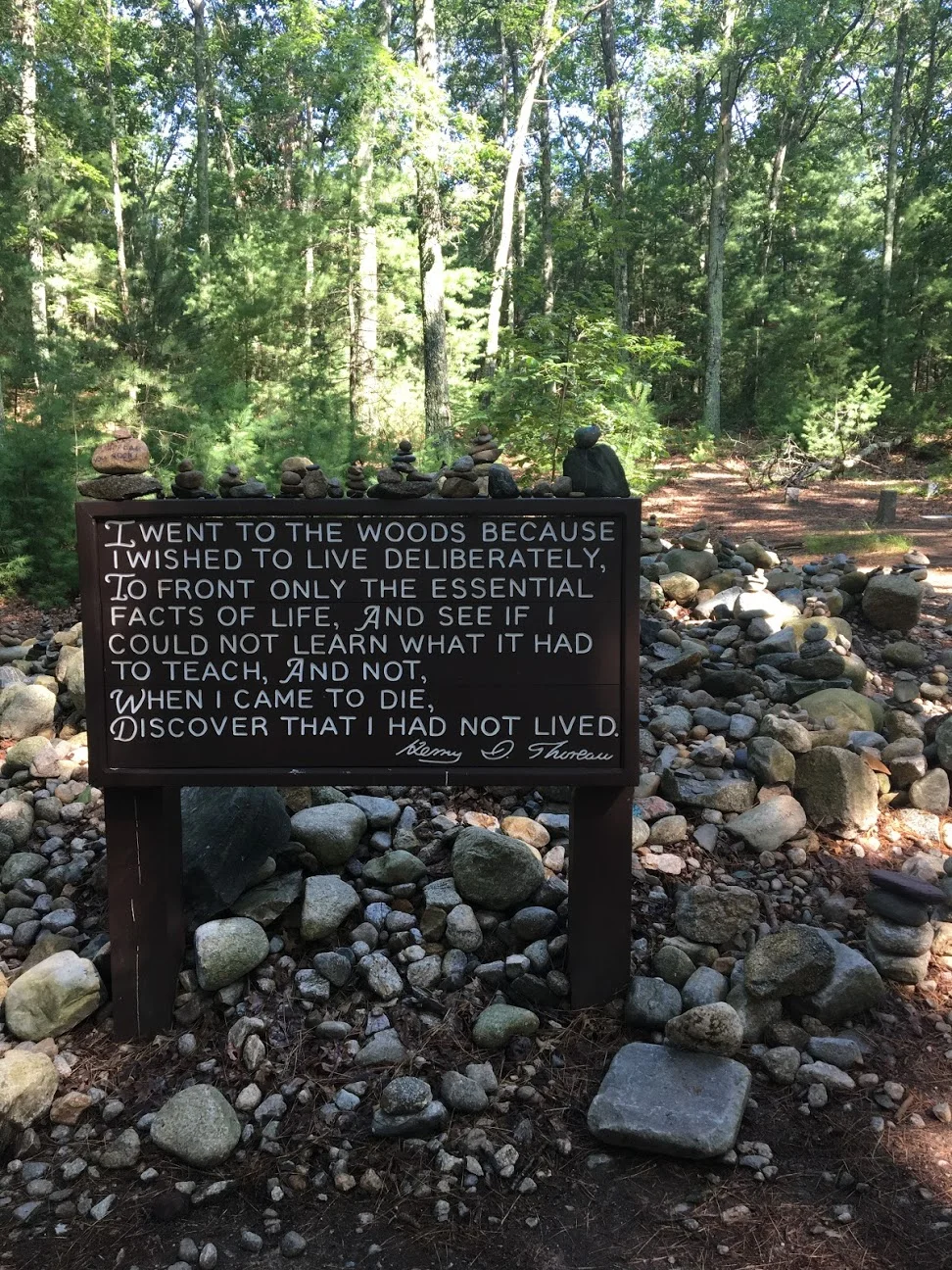This was my third year attending the Thoreau Society Annual Gathering in Concord, MA. The gathering spans multiple days, but as in past years, I joined for just one day. The cost and commute are factors, as well as the fact that while I’m a Thoreau enthusiast, I’m not a Thoreau scholar, and this tends to be a scholarly-leaning event. I enjoyed this year’s event more than last year’s in some respects (more diversity, more discussion) and less in others (more sweat, sweat dripping off my body all day long).
Before the gathering, I stopped by Walden Pond to walk the loop and to visit Thoreau’s cabin site. I got there around 9, and I’ve never seen the pond so busy. Holy Moses! I got in just before the lot closed, at capacity. I guess everyone wanted to spend the hot, sunny July day at the pond. Tanning, fishing, swimming, picnicking, kayaking. There wasn’t a single rocky spot around the perimeter of the pond that was open for me to sit without being up in someone’s business. I did have Thoreau’s house site to myself though, for the first time ever.
After about an hour at the pond, I headed into downtown Concord for the keynote at First Parish Church. The town way busy with cars and bikers. The spots where I usually park were already taken so I parked in the Keyes Road lot, which is thankfully free. For having a weird traffic circle in the middle of downtown, Concord is pretty easy to navigate.
The theme of this year’s gathering was Engineering Thoreau: Nature, Technology & the Connected Life. The original keynote speaker had to bail because of a health issue, and so a panelist of scholars stepped in to discuss this topic of Thoreau and technology. Honestly, I think I preferred this format. Everyone had different takes on the topic, which then extended into the audience as a somewhat tense debate about Thoreau’s philosophy on technology.
The revelation that came out of it was that everyone has their own preferred Thoreau: Thoreau the Spiritualist, the Naturalist, the Environmentalist (last year’s theme), the Abolitionist, the Civil Disobedient, the Engineer, etc. That last one often gets overlooked, but Thoreau studied locomotive engines, was a surveyor, liked to understand how stuff worked, tinkered. It was very clear that many people there would rather talk about Thoreau the Spiritualist or Naturalist or Civil Disobedient, and I liked that this year’s theme forced them to consider this question that was raised: “Which Thoreau are you ignoring, and why?”
After a heated keynote (the church had no AC… sweat city), I had lunch and decided to explore Concord a little. I got some caffeine at Haute Coffee – cute, kinda fancy-feeling. I was also surprised to see a Caffe Nero downtown. Not a Starbucks but still, I didn’t expect to see a big chain like that around. I went to Concord Bookshop, got a couple books. The vibe is… sophisticated?
Then it was time for afternoon sessions at the Masonic Hall, which started with this year’s delivery of the annual Thoreau Prize for nature writing. This year’s winner was Mary Oliver, who I learned would’ve been there to accept the prize if not for her death in January. Totally bummed to miss the chance to see her speak in person. Nature writer Deborah Cramer spoke instead, honoring Oliver’s life and poetry, and she did an awesome job.
Afterwards there was a reading and sharing of Thoreau-inspired poetry, including poems from Mary Oliver, Louisa May Alcott, Philip Booth. W. B. Yeates, Robert Francis, William Bronk, Maxine Kumin, and many more. It was an awesome session even through all the sweat… no AC in the Masonic Hall either. Phew.
Over break, I stopped by my car on Keyes Road and on the way found a cute, woodsy boardwalk and a secluded blue bench. This is Chamberlin Park.
The final session of the afternoon was back at the Masonic Hall, a panel sponsored by the Association for the Study of Literature and Environment (ASLE). Four scholars presented their papers on Thoreau studies, including:
The connections between Walden and B.F. Skinner’s Walden Two
Thoreau’s antisocial practices, and is solitude necessary to have Thoreauvian reflection
Thoreau’s philosophy of scientific versus poetic description, especially in journaling
Eco-erotica in Thoreau’s writings and his potential ecosexuality
That last one fascinated me. I’ve never heard of ecosexuality or eco-erotics before. I always assumed Thoreau’s sensual nature writing was a kind of suppressed or re-routed homosexuality, but I hadn’t considered that he might’ve been speaking more literally about having erotic experiences in nature. But, bringing it full circle to the morning’s keynote, that’s just me re-affirming my preferred Thoreau – Thoreau the Queer Icon.
At the end of the day I got dinner at Main Streets Café where I got to cool off and eat a delicious sandwich.




